Sikkim is a magnificent state situated in north-eastern India, nestled in the lap of the Himalayas. Its breathtaking landscapes, vibrant culture, diverse flora and fauna, and ancient monasteries make it one of the most enchanting places to visit. The capital city, Gangtok, is a bustling hub surrounded by majestic mountains, housing monastic treasures like Enchey Monastery and the Namgyal Institute of Tibetology. Sikkim has natural wonders like Tsomgo Lake, Yumthang's Valley of Flowers, and Nathula Pass on the Indo-China border. It's a place that offers a lifetime experience.
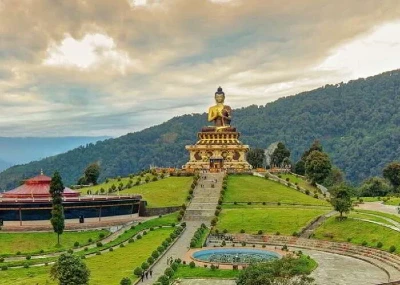
Nestled in the South Sikkim district, Ravangla is known for its tranquility and stunning views of the Himalayas. Visit the Buddha Park, Rayong Sunrise Viewpoint, and the Ralong Monastery.
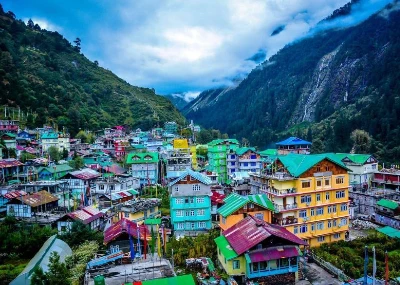
The capital of Sikkim, Gangtok, is renowned for its stunning scenery, lively markets, and historic monasteries. Discover the serene Enchey Monastery, delve into the rich heritage at the Namgyal Institute of Tibetology, and enjoy a leisurely walk down MG Marg, the bustling shopping hub.
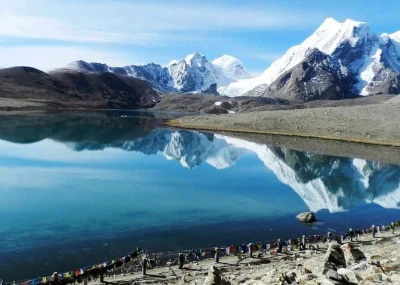
This serene glacial lake, nestled amidst towering mountains, is celebrated for its untouched splendor. In winter, it transforms into a breathtaking frozen vista. Located en route to Nathula Pass, Tsomgo Lake remains a favored destination for travelers.
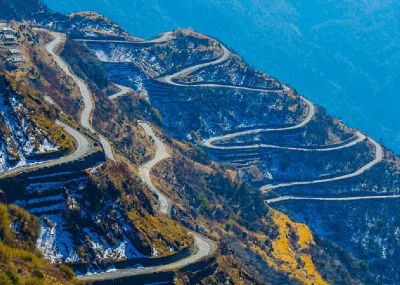
Nestled along the Indo-China border, Nathula Pass is a lofty mountain pass renowned for its breathtaking vistas of the snow-draped Himalayas. Accessing this scenic wonder demands a permit, making the trip a thrilling escapade from start to finish.
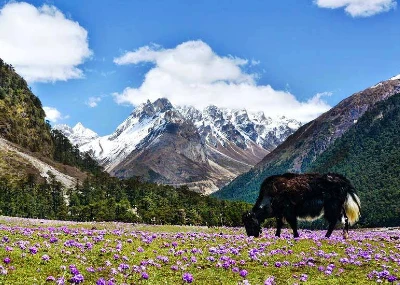
Yumthang, often called the Valley of Flowers, is a stunning high-altitude valley encircled by snow-draped peaks. It’s renowned for its vibrant meadows and the Shingba Rhododendron Sanctuary, which bursts into a riot of color during the spring season.
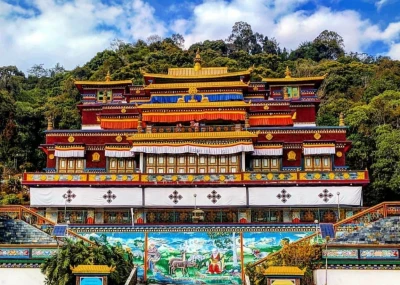
Situated close to Gangtok, Rumtek Monastery stands as one of Sikkim's most significant and expansive monastic complexes. Serving as a key center for the Kagyu lineage of Tibetan Buddhism, it provides a serene and deeply spiritual environment.
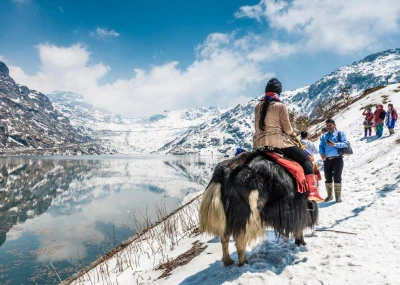
These two charming villages in North Sikkim act as entry points to lofty destinations such as Gurudongmar Lake and Zero Point. Lachung is additionally renowned for the scenic Yumthang Valley.
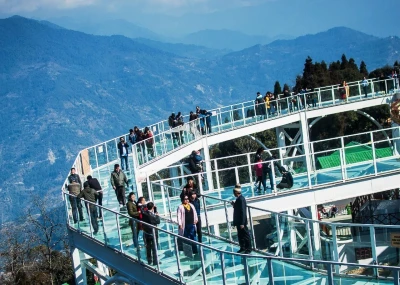
Pelling, a delightful town in West Sikkim, boasts stunning vistas of the Kanchenjunga peaks. Explore the serene Pemayangtse Monastery, the historic Rabdentse Ruins, and the peaceful Khecheopalri Lake for a truly calming getaway.
Indian tourists: Require an Inner Line Permit (ILP) to enter Sikkim. It can be obtained at the border checkpoints.
Foreign nationals: Require a Restricted Area Permit (RAP), and some areas may be off-limits.
By Air: The nearest airport is Bagdogra Airport (IXB) in West Bengal (about 125 km from Gangtok). Taxis and shared cabs are available.
By Rail: The closest major railway station is New Jalpaiguri (NJP) in West Bengal. From NJP, taxis and shared cabs operate frequently to Sikkim.
By Road: Sikkim is well-connected by road with regular buses, shared jeeps, and private taxis from Siliguri, Darjeeling, and NJP.
March – June: Ideal for sightseeing, pleasant weather.
September – November: Clear skies, great mountain views.
December – February: Snowfall in high-altitude areas like Nathula Pass and Lachen.
Have any questions? We've got answers!
The best time is March to June for greenery and September to November for clear mountain views. Winter (December-February) is best for snowfall.
The nearest airport is Bagdogra (IXB), and the closest railway station is NJP. From there, taxis and shared cabs are available to Gangtok.
Yes, Indian tourists require an Inner Line Permit (ILP), and foreign tourists need a Restricted Area Permit (RAP). Additional permits are needed for Nathula Pass and North Sikkim.
Yes, you can witness snow in Nathula Pass, Yumthang Valley, and Gurudongmar Lake during winter months (December - February).
Momos, Thukpa, Gundruk Soup, Sael Roti, Sikkimese Tea, and Phagshapa (pork dish).
Yes, Sikkim is one of the safest travel destinations in India with a friendly and peaceful environment.
